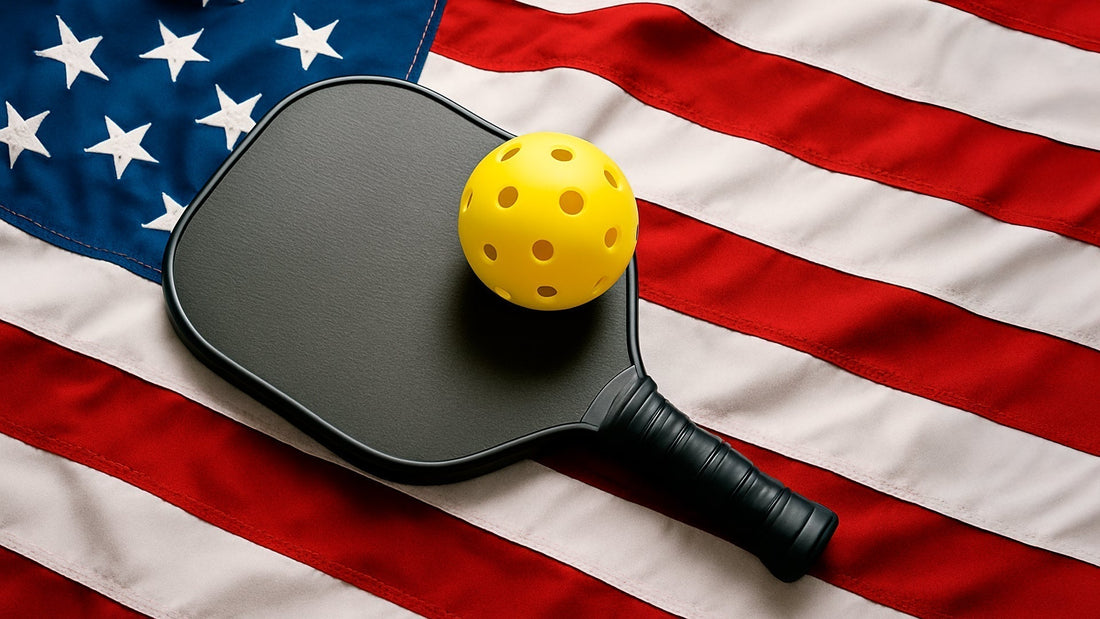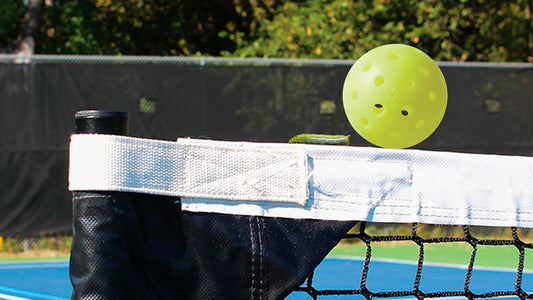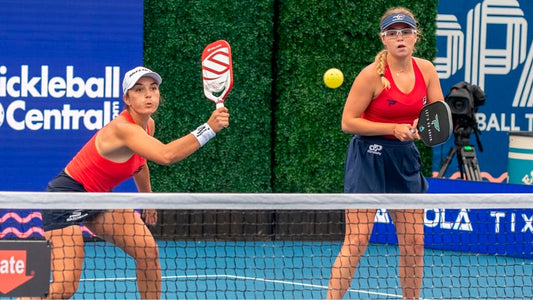
How U.S. Tariffs Could Drive Up the Cost of Pickleball
Share
“There’s no such thing as a free paddle when tariffs come into play.” — Anonymous
Pickleball may be America’s fastest-growing sport, but it’s not immune to global economic shifts. In 2025, the U.S. government announced a new wave of tariffs on a wide range of imported goods, including sporting equipment and materials often used in paddle manufacturing. While intended to protect American manufacturing and strengthen domestic trade, these tariffs could have an unexpected side effect: raising the cost of playing pickleball.
Here’s what players, retailers, and facility owners need to know, and how it may impact the future of the game.
What Are the New U.S. Tariffs?
In May 2025, the U.S. Trade Representative announced updated tariff policies aimed at imported goods from certain countries, especially China, which is a major supplier of raw materials and finished sports equipment. These tariffs include:
- 25–50% increases on select sporting goods
- Tariffs on carbon fiber, graphite, and aluminum—core materials in pickleball paddles
- Added fees on rubber and plastic components used in balls, grips, and accessories
- Tariffs on textiles and apparel, which could impact pickleball-specific clothing
How This Impacts the Pickleball Market
While not every product will be affected immediately, here’s how the tariffs could trickle down to the court:
1. Paddle Prices Could Rise
Many top pickleball paddles are either made overseas or depend on imported components. Brands sourcing from countries facing new tariffs may pass those costs on to consumers. Expect prices for premium paddles, especially carbon fiber and edgeless designs, to increase by $20–$50 per paddle.
2. Balls & Accessories Won’t Be Spared
Pickleballs themselves (especially outdoor balls) are usually manufactured abroad. With new costs added to plastic polymers and shipping, even a standard set of balls could cost more by mid-year. Add in price hikes for bags, grips, eyewear, and nets, and your gear bag could get much more expensive.
3. Court Builders May See Higher Material Costs
Facilities planning new court construction or resurfacing projects could face higher bids due to increased prices for fencing, paint, net systems, and surfacing materials. This may delay openings, renovations, or even pickleball facility launches in some areas.
4. Apparel Brands May Adjust Prices
With tariffs hitting imported performance textiles, expect price increases on pickleball skirts, shirts, hats, and moisture-wicking socks—particularly those made overseas. Domestic brands may benefit in the long term, but prices are likely to go up first.
How Players and Consumers Might Respond
As prices climb, consumers may:
- Delay upgrading paddles or buying second equipment sets
- Seek more budget-friendly or used options
- Shift toward U.S.-made gear, supporting domestic brands
- Be more selective about memberships and facility fees
- Attend fewer tournaments that require travel and registration fees
On the flip side, this could spark innovation and investment in domestic production, leading to more Made-in-USA gear and a stronger local supply chain.
How to Stay Ahead of the Tariff Surge
Whether you’re a recreational player or a pro shop owner, here are some tips to soften the blow:
- Buy now if you’ve been eyeing a new paddle—retailers may raise prices soon
- Watch for bundle deals before summer price changes hit
- Support American-made brands that won’t be affected by overseas tariffs
- Split bulk orders with your local group to save on balls and accessories
- Look for loyalty programs or resale markets to get quality gear at a discount
Game Point
Pickleball isn’t just a backyard hobby anymore. It’s big business. And like all global markets, it’s now influenced by international policy. While the new U.S. tariffs are intended to strengthen domestic industry, they could temporarily raise prices for paddles, balls, and apparel across the sport.
As the dust settles, players can expect a short-term pinch, but also a long-term opportunity: to support American brands, rethink consumption habits, and advocate for affordable access to the game we love.
See you on the courts!



